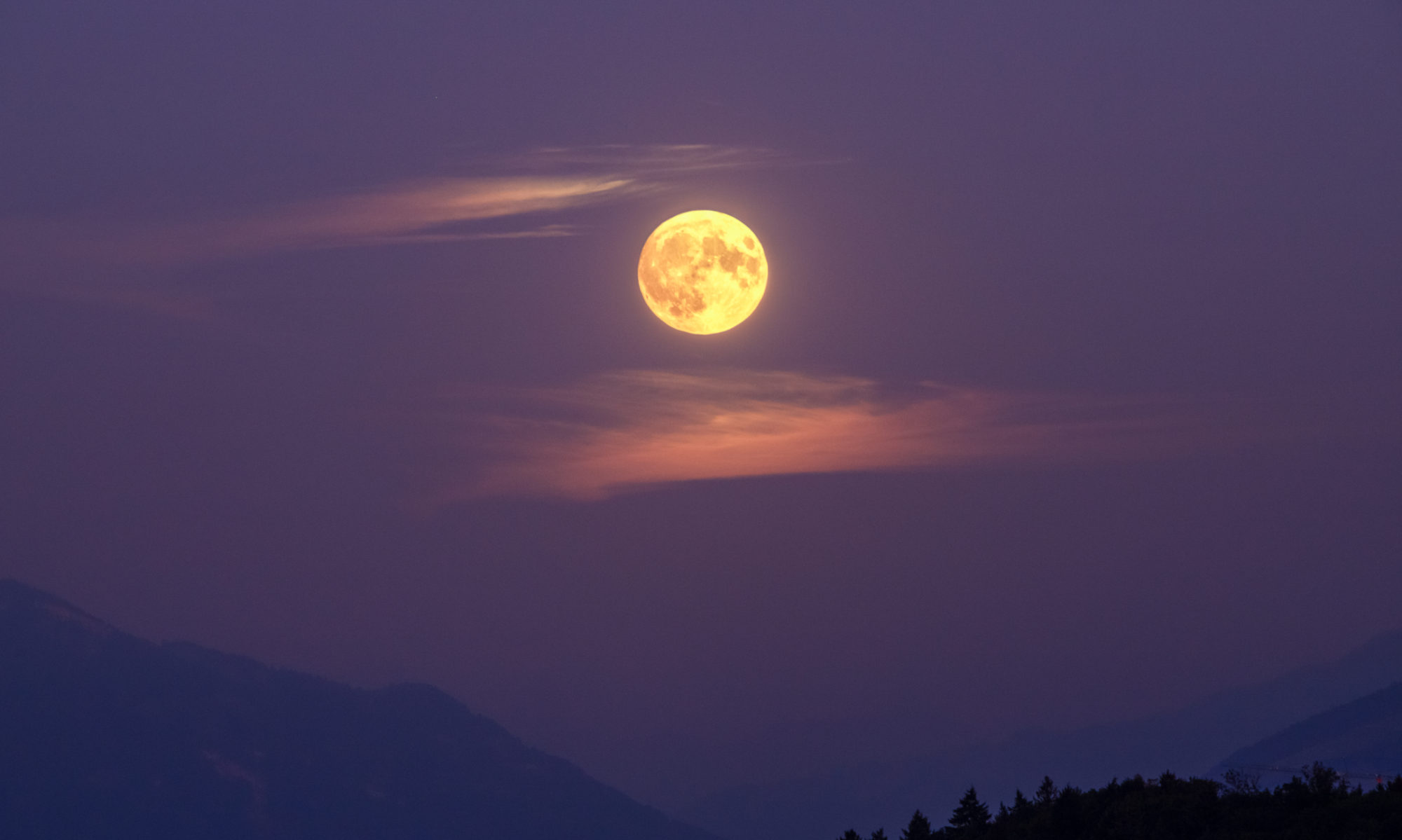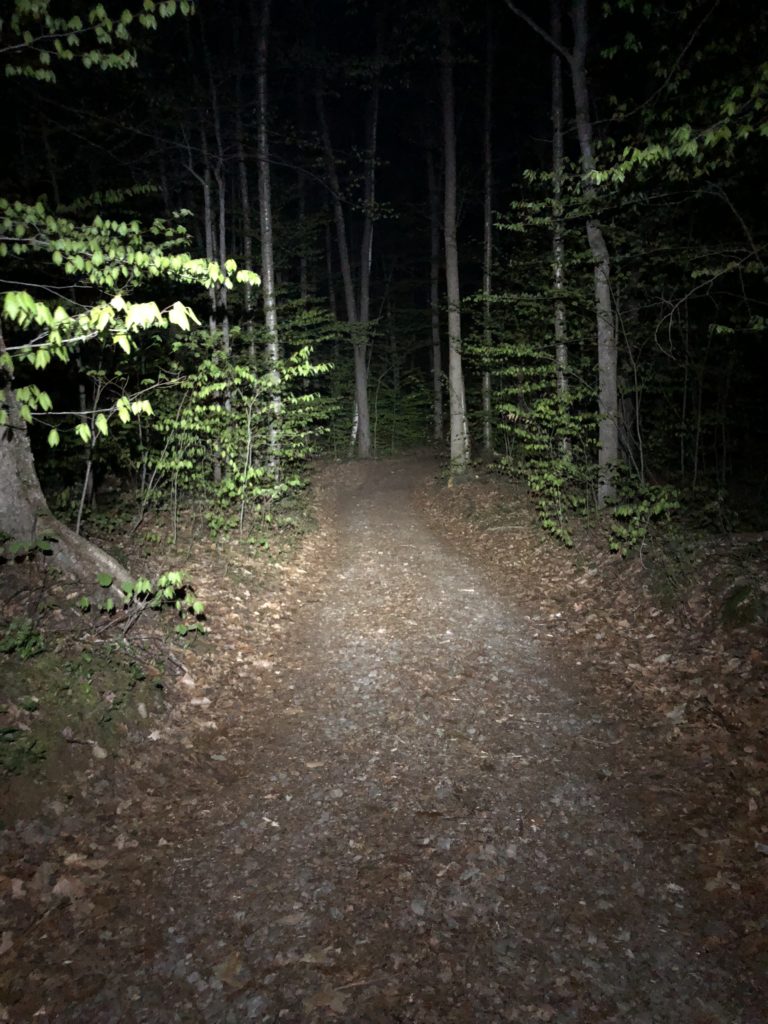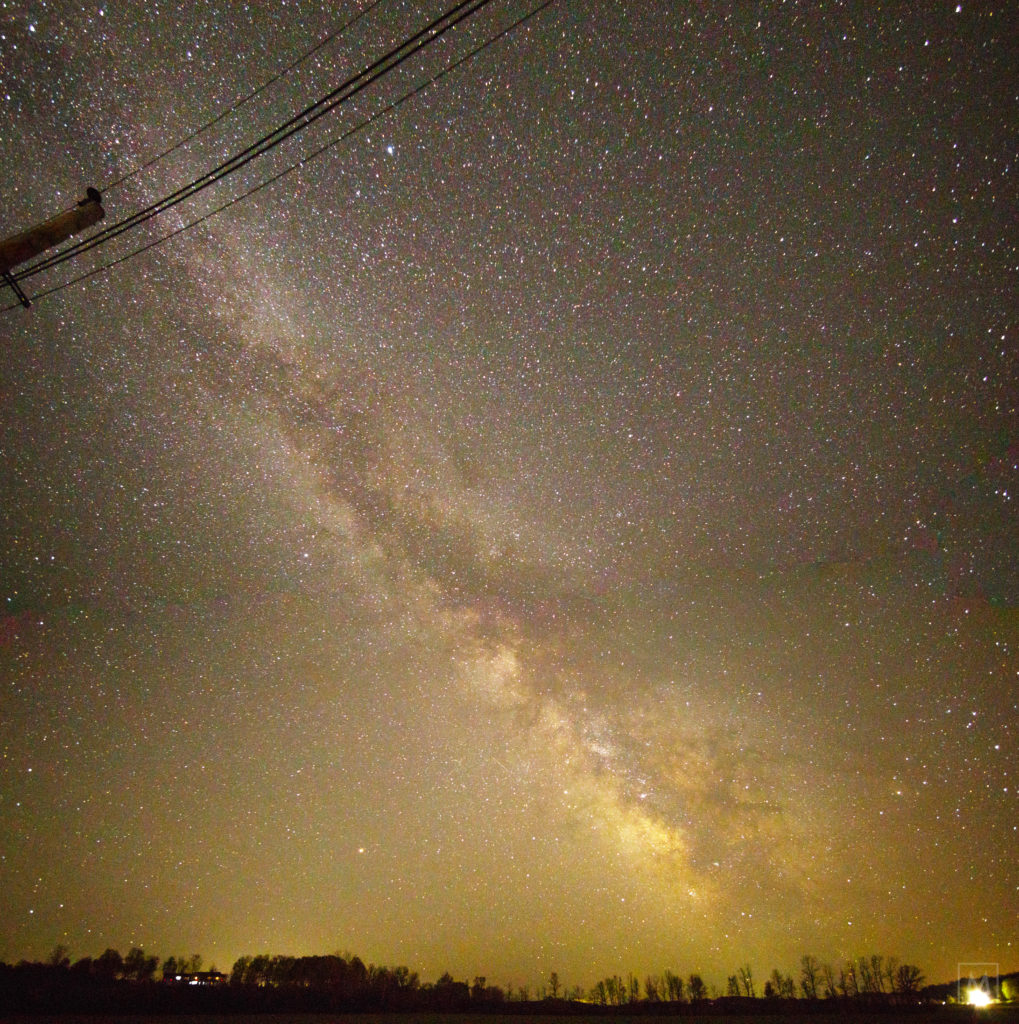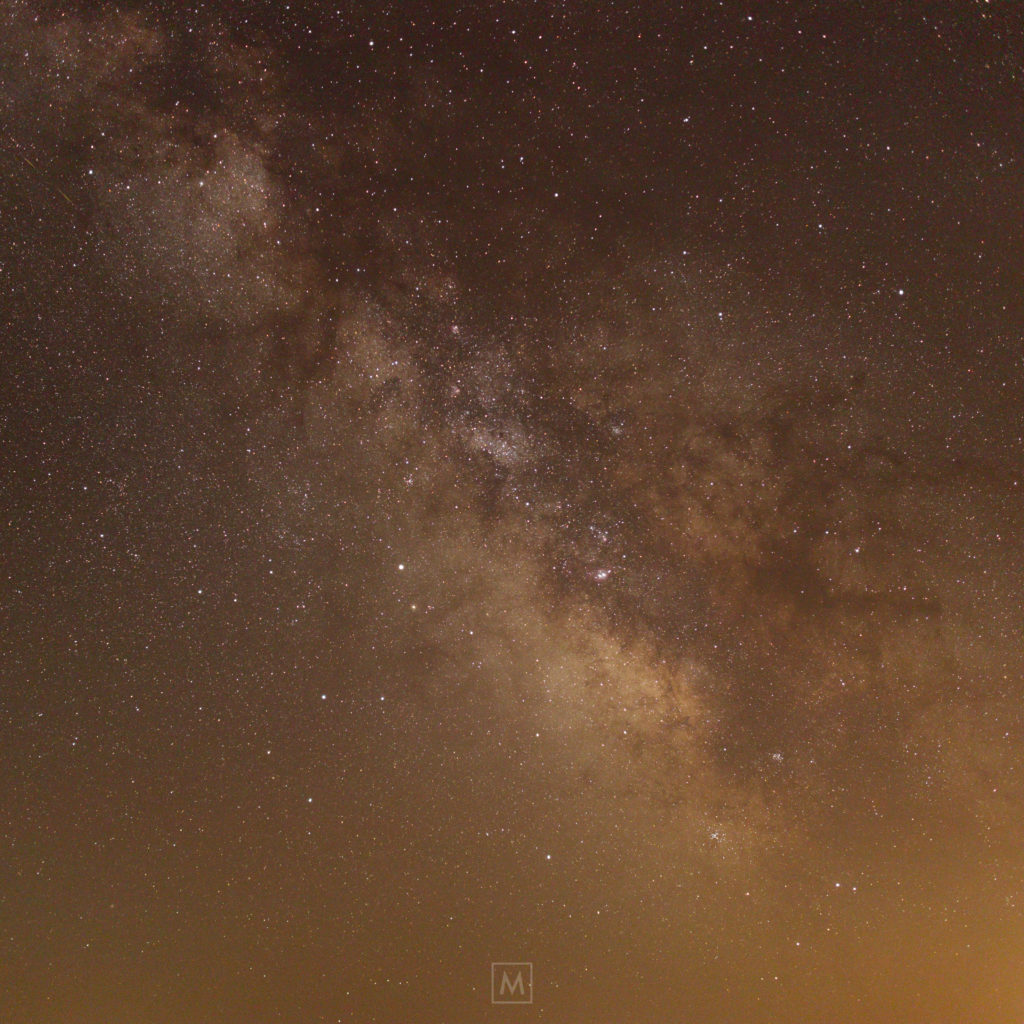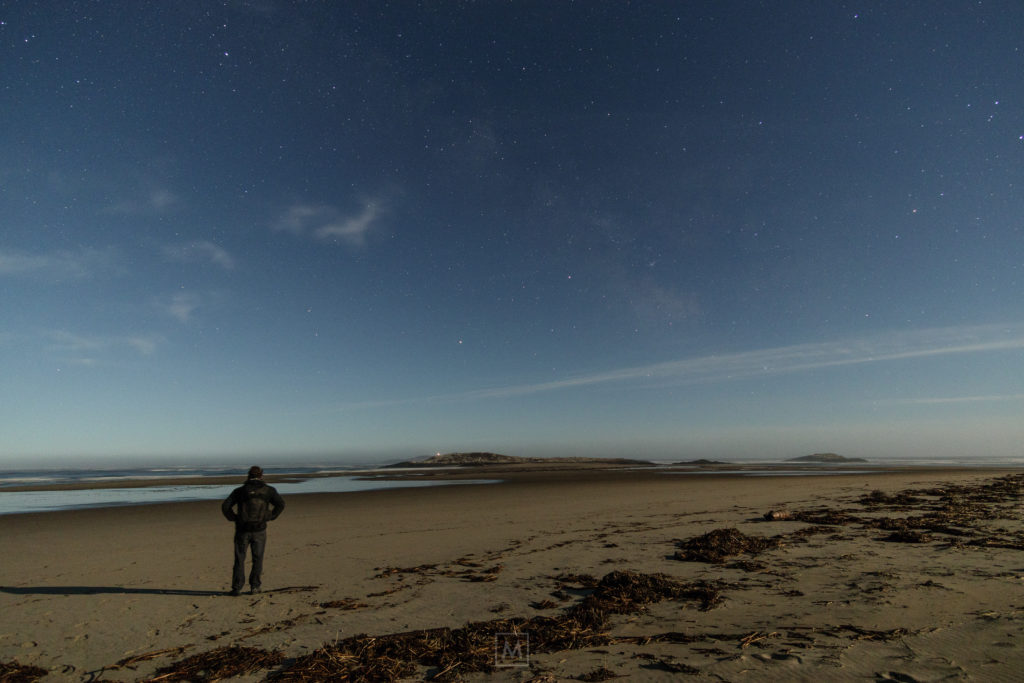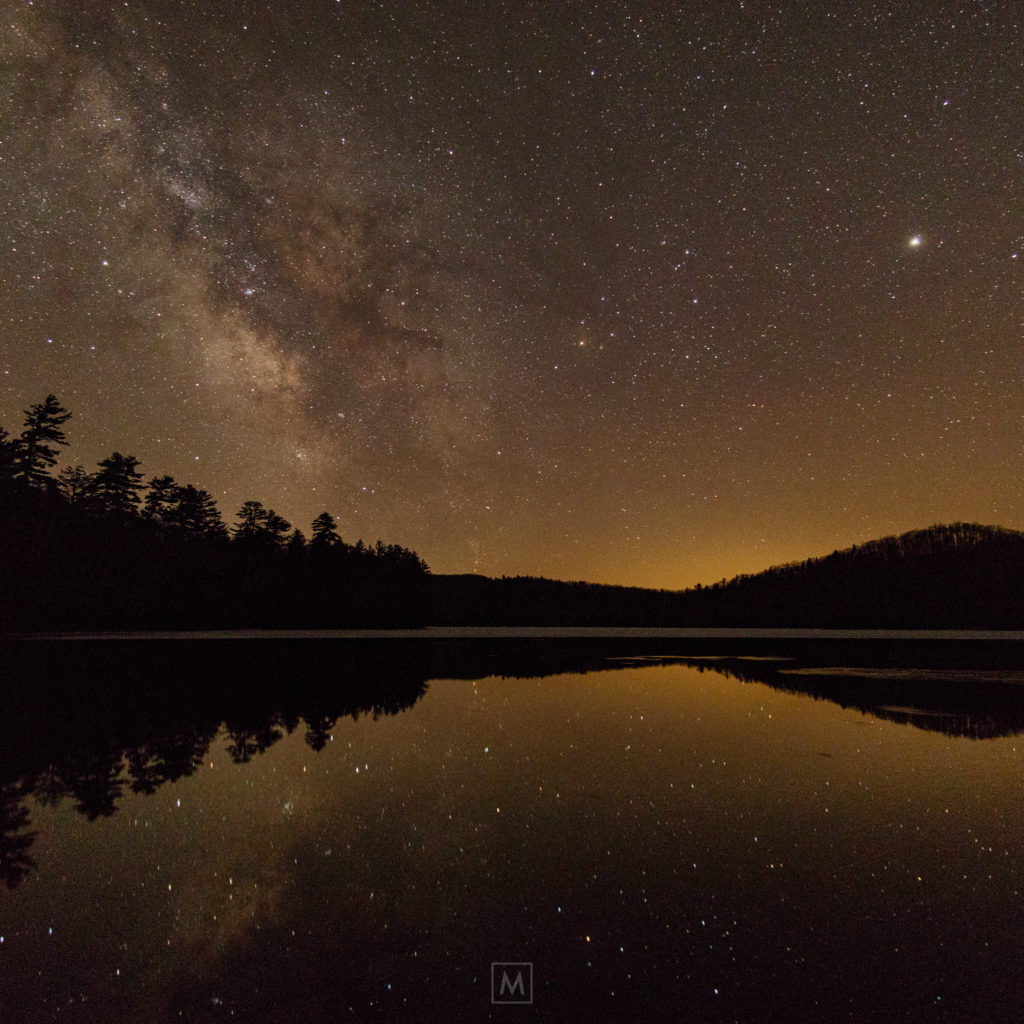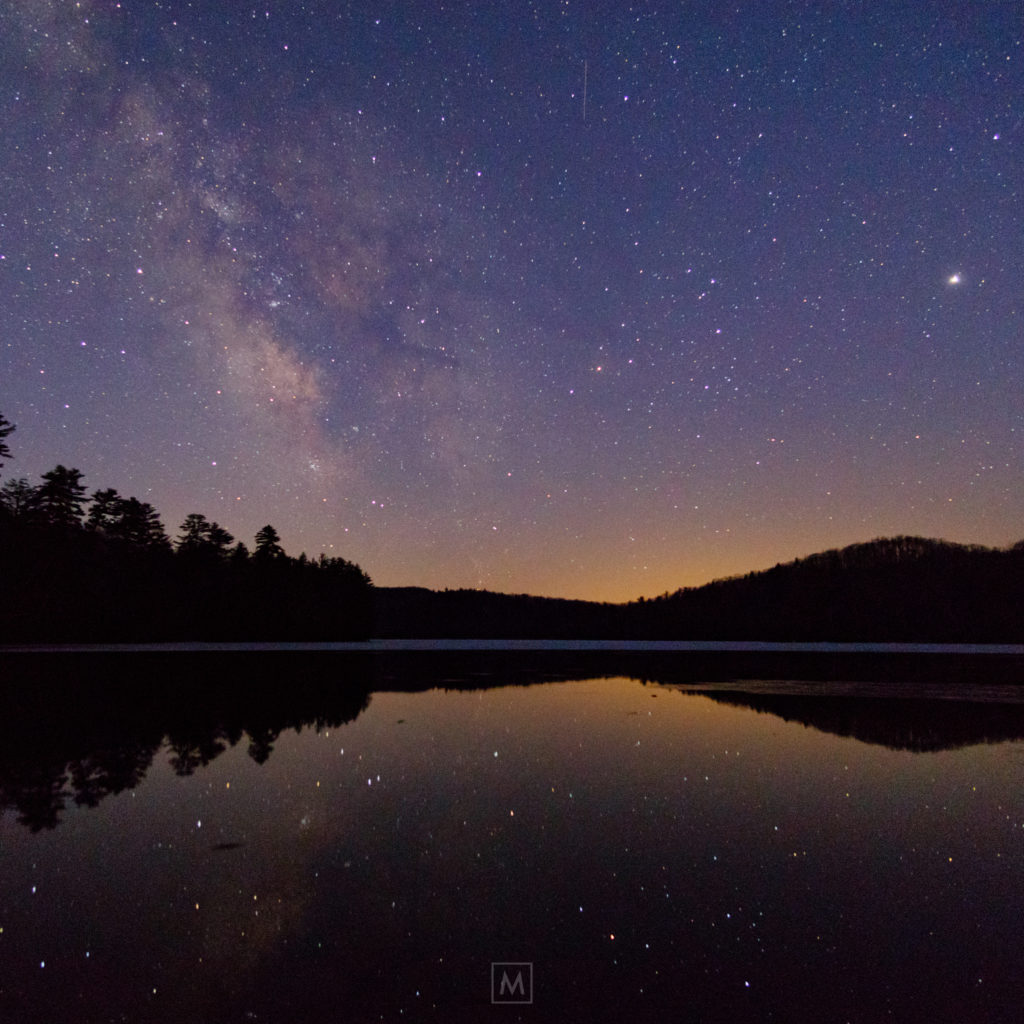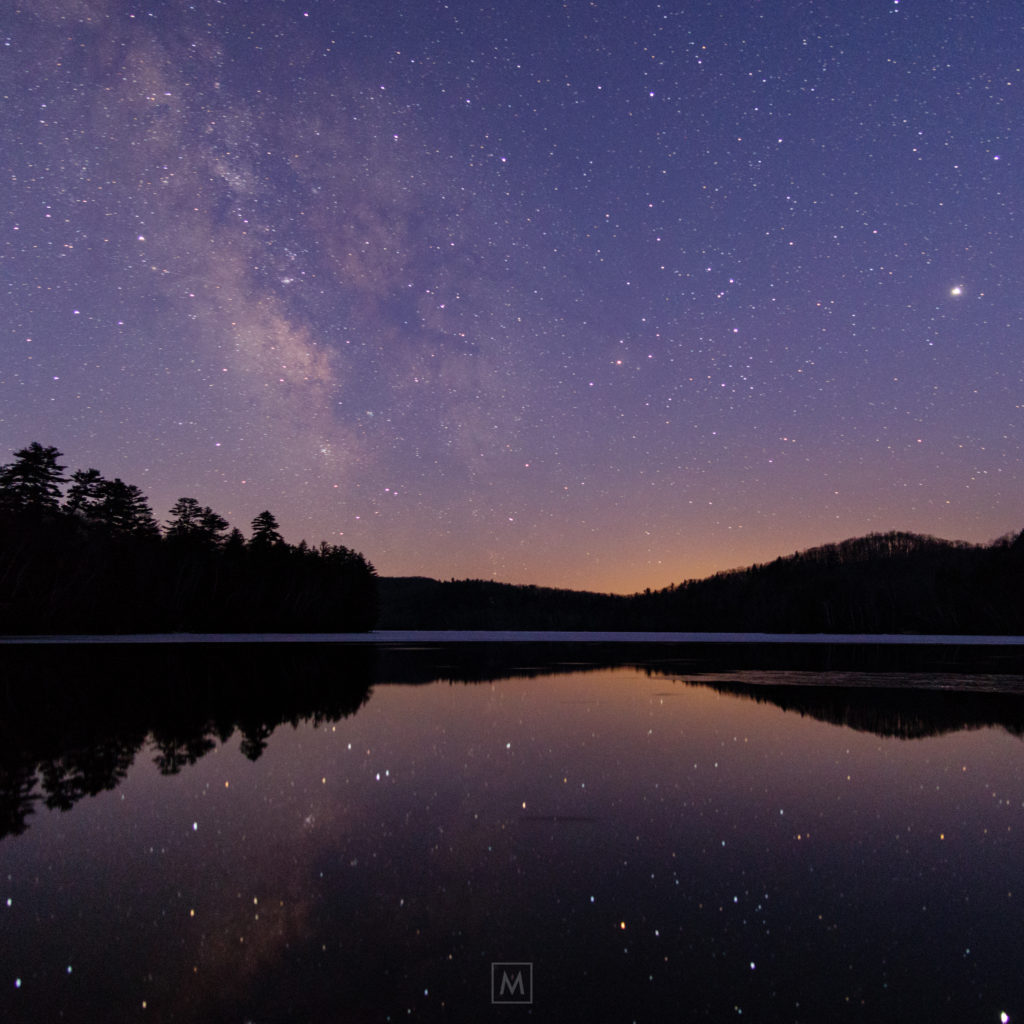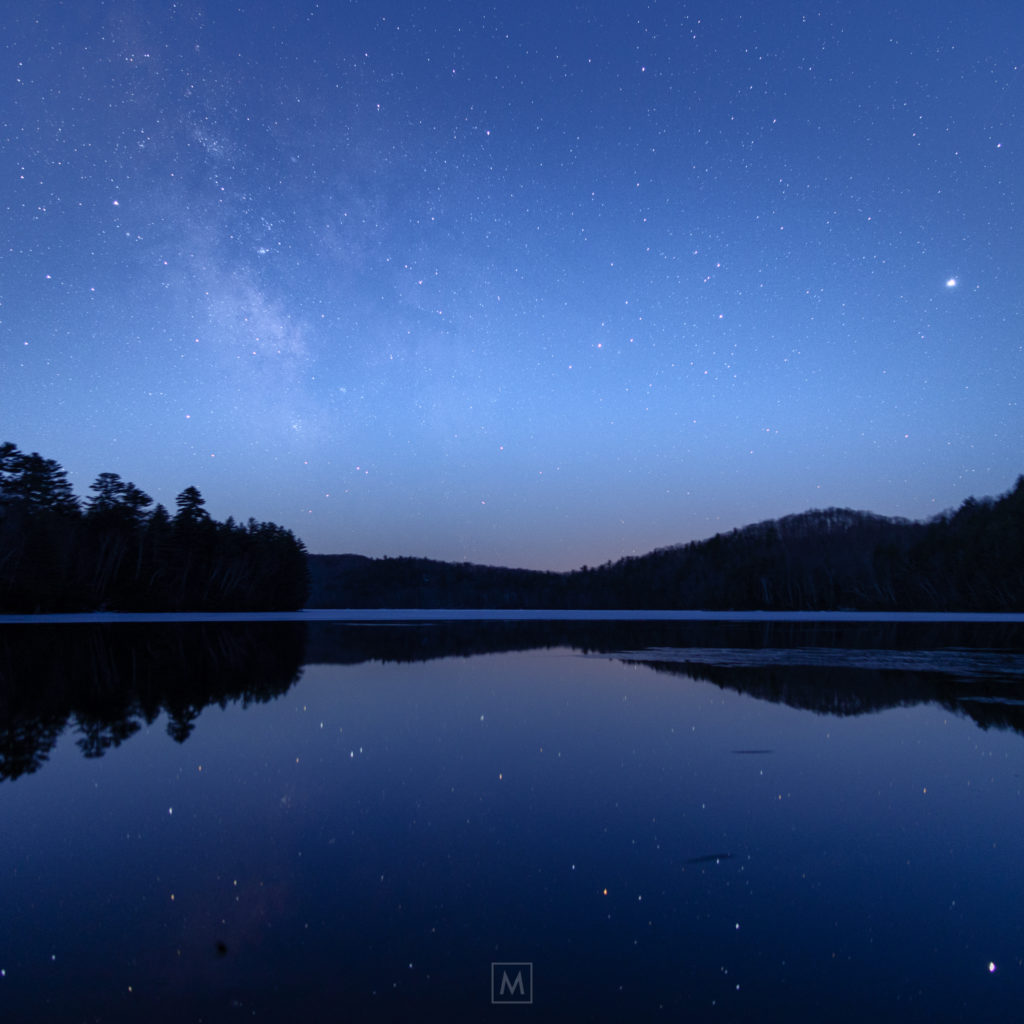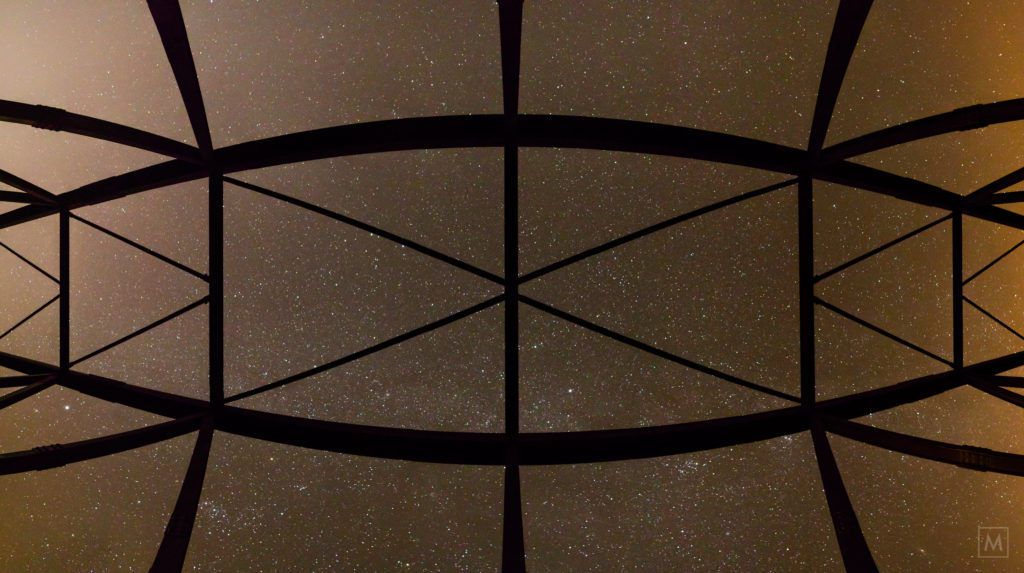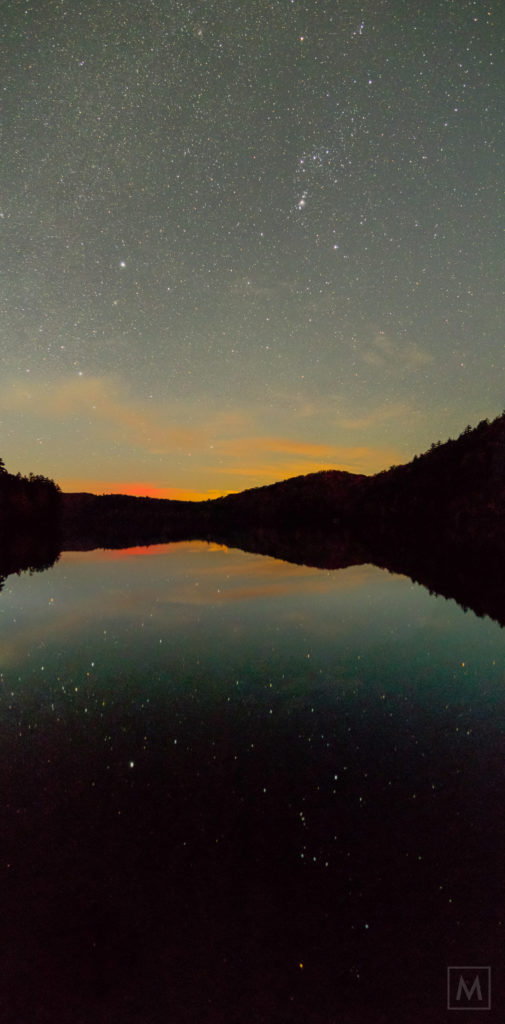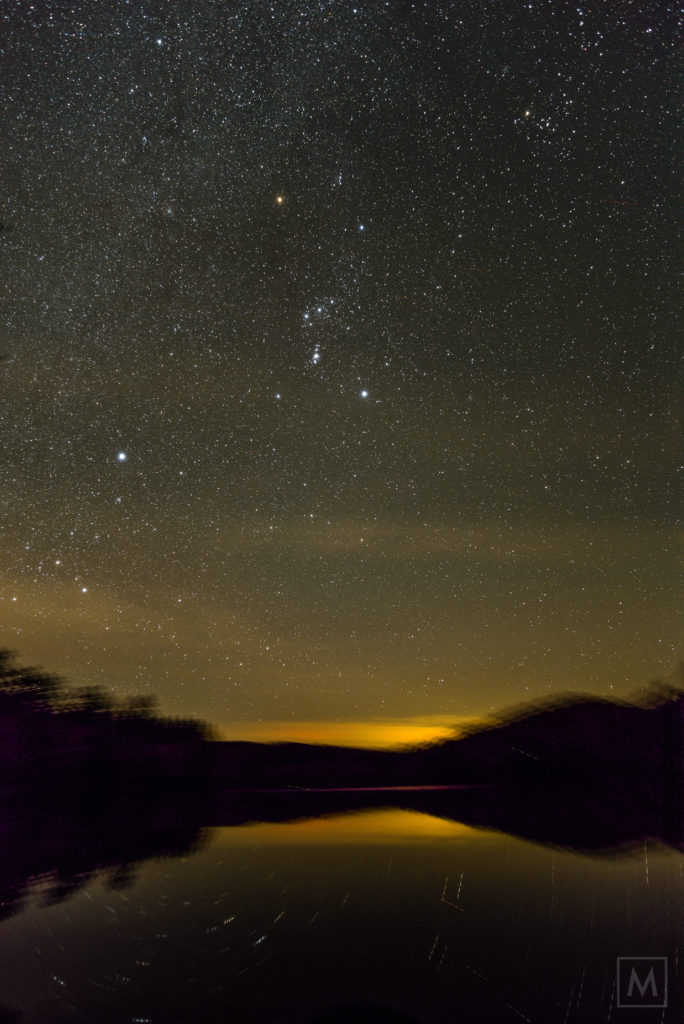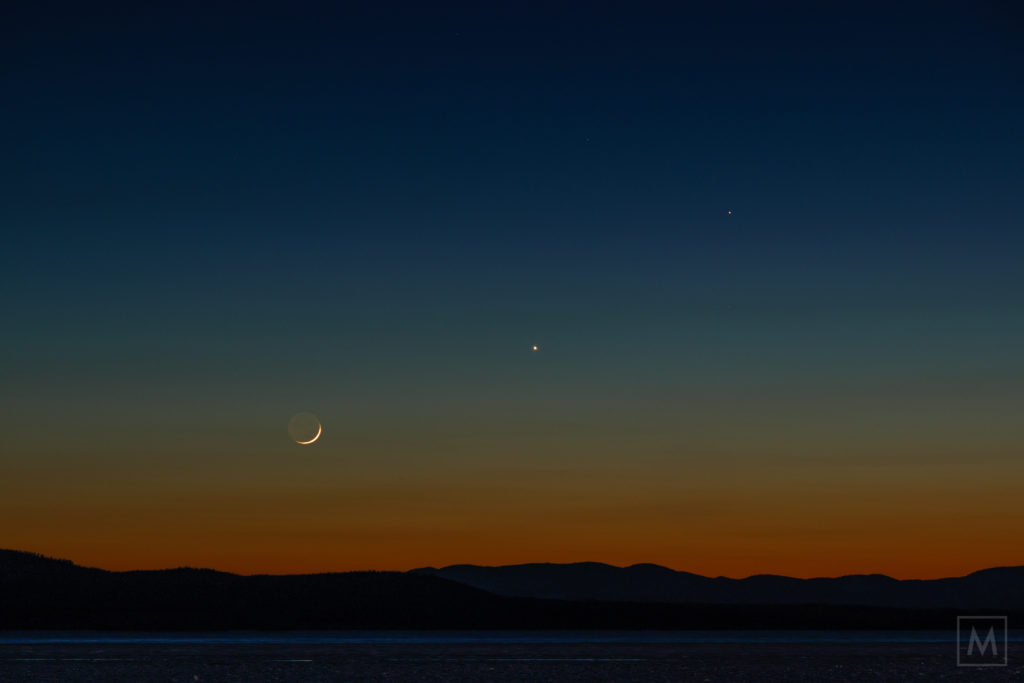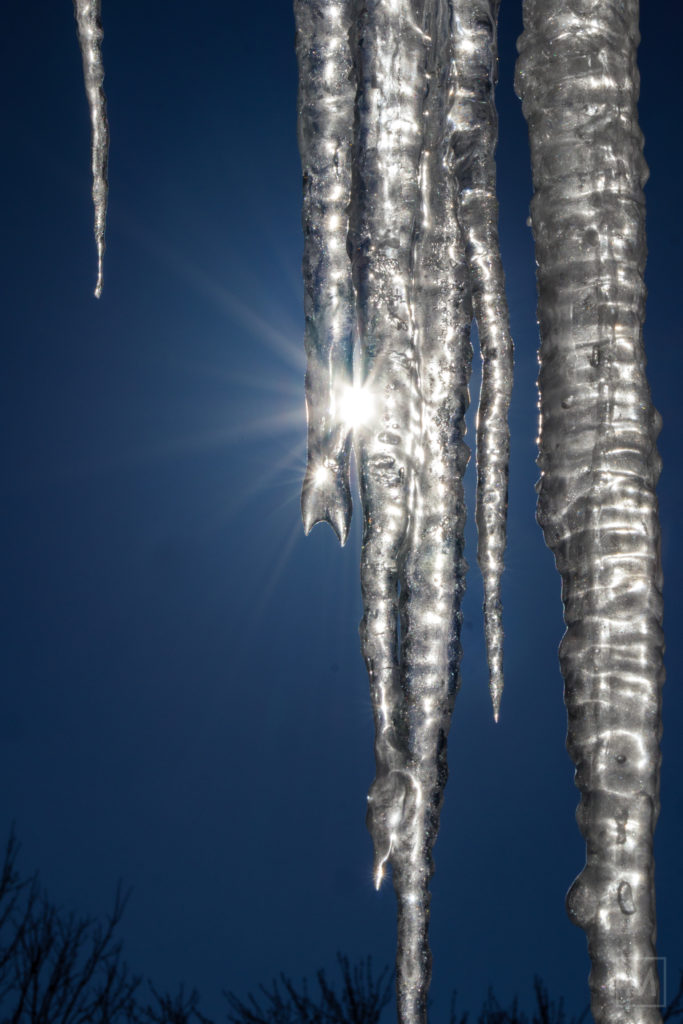I have been watching the moon and the weather for the past few days and hoped that last night would have been a good night to get some tracked shots of the Milky Way over Silver Lake in the Green Mountain National Forest, VT – I packed up gear, kissed the kids and wife goodnight and headed off to the lake. An hour drive, and then a hike in to what I had scouted via satellite maps.
There is always this leap thats required for me – from riding a 400k, to taking on a new bikepacking route, to a long sunrise hike… the leap happens in small steps, and then there is the moment the airlock seals and you are off on your own in the vastness of the world. For early morning / night hiking its the resounding sound of the car door slamming and echoing in the woods.
I bushwhacked via GPS to a rock outcropping that I scoped out on satellite maps – but the real world didn’t want to work as well as it looked on the maps. I backtracked and wandered back to a known location and got setup. While waiting for the Milky Way to rise I did some test shots with my Canon G7x2 to see how the point and shoot handled the night sky, then setup the Vixen Polarie and I used my RRS nodal / pano head for easier movement of my camera.
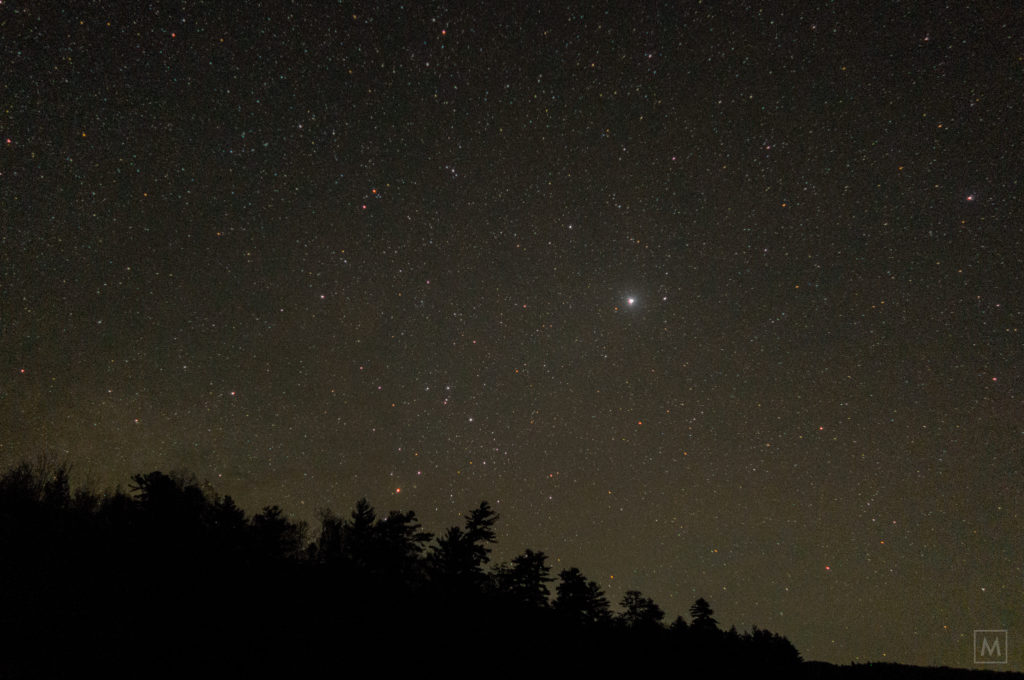
I did not have a clear view of Polaris – so I aligned via compass and latitude – then used an astronomy app to confirm I was in the ballpark, I took some test shots for focus and then did a few test shots for tracking.
This image is a stitch of 8 tracked shots that I took while waiting for the earth to rotate under the MW and get it aligned over the lake. As I was waiting it got dark – which is an odd thing to have happen at night – clouds rolled in and I waited for a bit and packed up and hiked out.
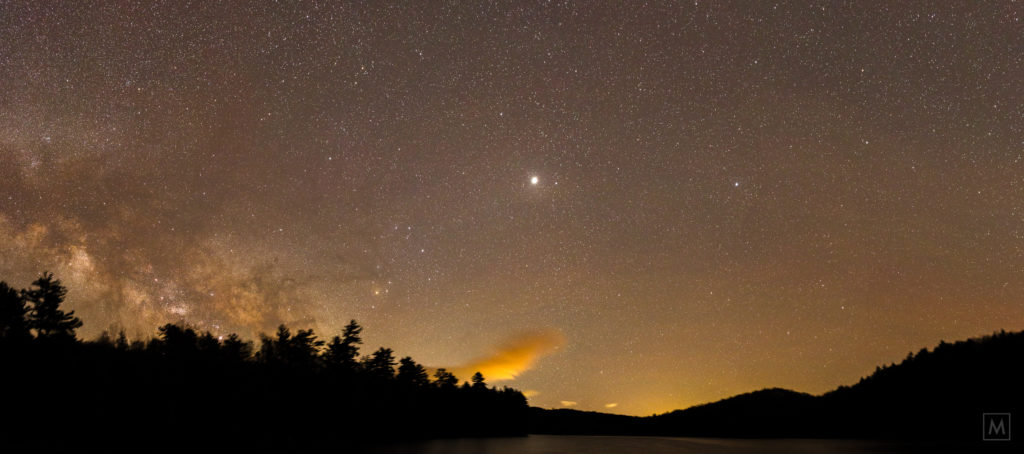
Tracking – which is made possible by a Vixen Polarie that rotates at the same rate as the stars relative to the Earth seems to have worked out OK – especially for essentially being blind by not having a clear line of sight, nor a polar scope. I’m happy with the result and I will likely shorten up the length of the exposure next time out, and maybe drop the ISO a bit and stack 4 frames from each shot in order to knock down the noise.
Imagine, Try, Fail, Learn, Repeat.
On the drive home I got clear of the clouds and stopped roadside to get a few static shots – it certainly wasn’t as scenic nor dark as at the lake – but I did get a consolation prize of a second image.
